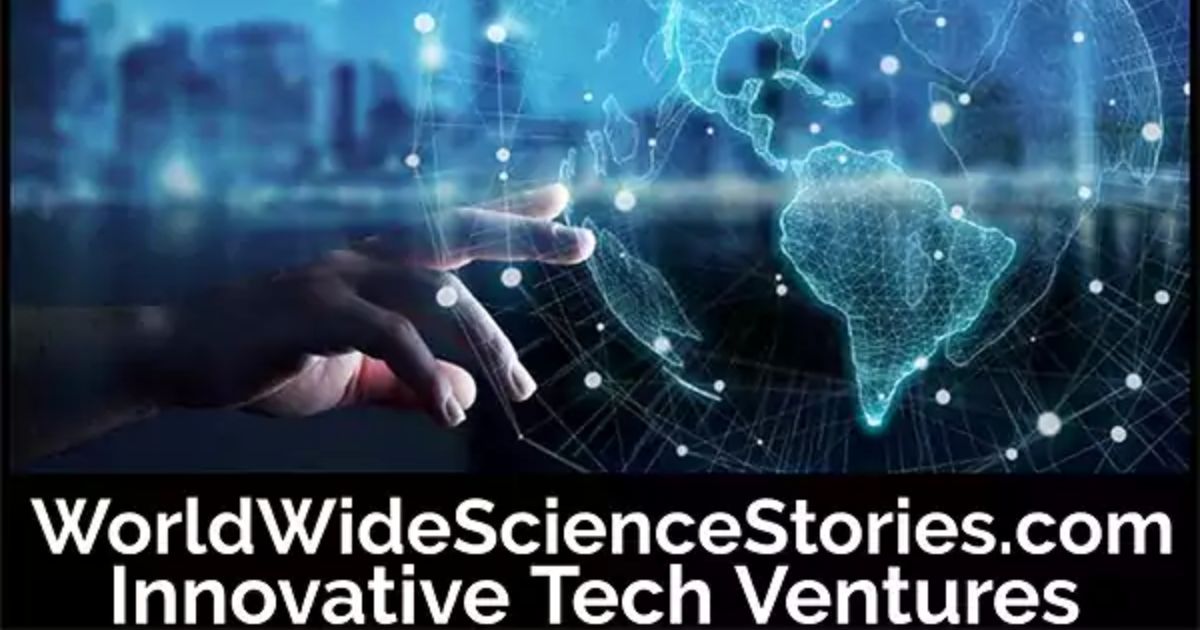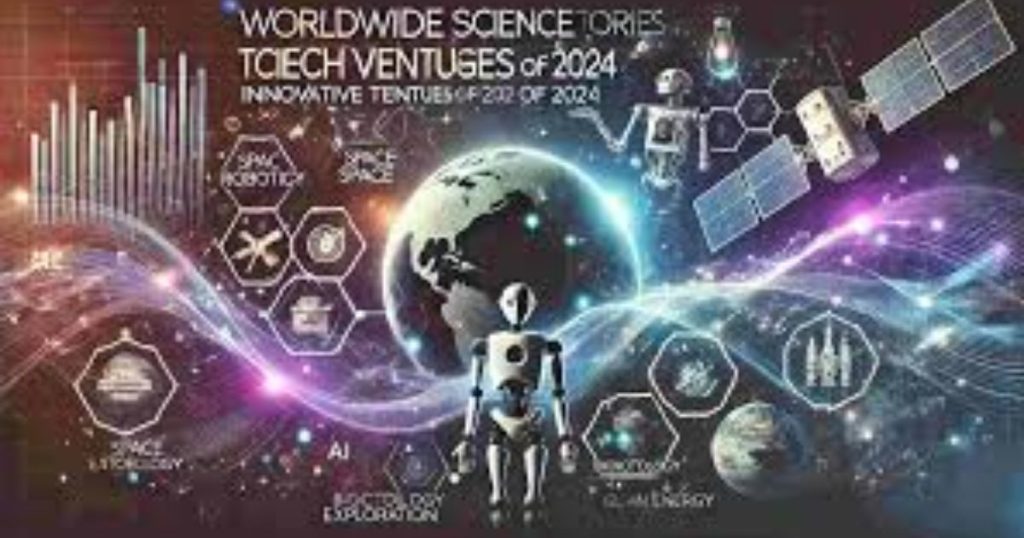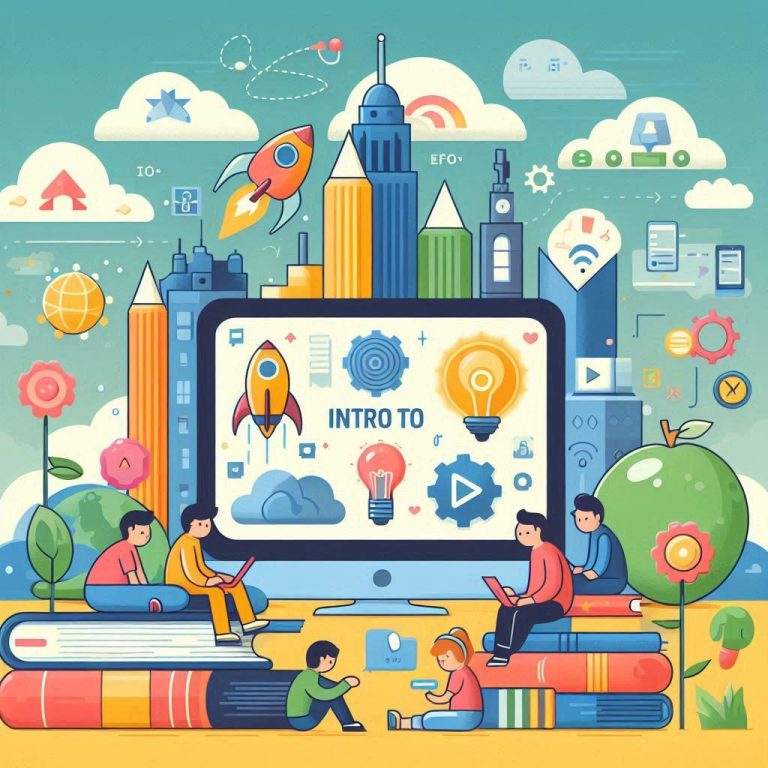worldwidesciencestories.com innovative tech ventures

The world of science and technology is evolving at an unprecedented pace, with innovative tech ventures spearheading the transformation. Platforms like WorldWideScienceStories.com are at the forefront of these groundbreaking advancements, bringing the latest in AI, machine learning, quantum computing, and more to the public eye. These ventures are not just pushing the boundaries of innovation—they are reshaping industries and driving change in fields like healthcare, renewable energy, space exploration, and biotechnology.
In this article, we will explore how WorldWideScienceStories.com and other innovative tech ventures are driving the future of science and technology. By diving into emerging technologies and future tech trends, we’ll examine their impact on everything from sustainable energy solutions to AI-powered healthcare, and discuss the real-world applications, ethical considerations, and environmental sustainability of these advancements.
The Role of AI in Shaping the Future of Science and Technology

Artificial Intelligence (AI) has emerged as one of the most influential forces in modern technology. From machine learning (ML) to deep learning and natural language processing (NLP), AI is revolutionizing industries by automating processes, improving decision-making, and enabling personalized experiences.
AI and Healthcare Innovations
The healthcare sector is experiencing a transformation thanks to AI advancements in healthcare. AI-powered tools are now being used to analyze medical imaging, assist in drug discovery, and even predict patient outcomes. These innovations are not just improving patient care but also making healthcare more accessible and efficient.
For example, AI-based predictive analytics are helping doctors make faster and more accurate diagnoses. In addition, wearable health technology is collecting data in real-time, providing healthcare providers with valuable insights into patient health. As AI and robotics continue to advance, we can expect robotic surgery and telemedicine to become more common, further improving healthcare delivery.
The Impact of AI on Other Sectors
Beyond healthcare, AI is making waves in a variety of other sectors, including finance, transportation, and agriculture. AI in agriculture is enhancing food security through precision farming and the development of pest-resistant crops. In the world of finance, AI is being used to optimize trading algorithms and improve financial forecasting.
Furthermore, AI-driven solutions are transforming transportation with innovations such as self-driving cars, AI-based traffic control systems, and sustainable transportation networks. These technologies are not only improving safety and efficiency but are also reducing the environmental impact of traditional transportation methods.
Quantum Computing: Unlocking New Possibilities
As AI continues to make strides, quantum computing breakthroughs are poised to take technology to new heights. Quantum computing harnesses the unique properties of quantum mechanics to process information at speeds far beyond what is possible with classical computers. This opens up new possibilities in fields like cryptography, drug discovery, and climate change research.
The Potential of Quantum Computing in Various Industries
One of the most exciting applications of quantum computing lies in its ability to solve complex problems that are currently beyond the reach of traditional computers. In drug discovery, quantum computers can simulate molecular interactions at an unprecedented level of detail, potentially accelerating the development of life-saving medications.
In the field of cybersecurity, quantum encryption offers a new level of protection against cyberattacks. As more industries adopt quantum computing, we can expect quantum machine learning and quantum-based AI to become integral to solving some of the world’s most pressing challenges.
Integrating Quantum Computing with AI
The convergence of AI and quantum computing has the potential to unlock new dimensions of possibility. By combining the power of AI with the computational capabilities of quantum computers, we can solve problems that were once thought unsolvable. From optimizing supply chains to advancing research in space exploration technologies, the possibilities are endless.
The Future of Renewable Energy: Driving Sustainable Solutions
As concerns over climate change grow, renewable energy developments are becoming increasingly important. Green energy, solar power, and wind electricity are no longer just alternatives to traditional fossil fuels; they are becoming the backbone of the global energy infrastructure.
Advancements in Solar and Wind Power
Solar power has seen significant technological advancements, from more efficient solar panels to energy storage solutions. Innovations in solar power technology are making it more affordable and accessible, which is crucial for achieving a sustainable future. Similarly, wind electricity is becoming a key player in the energy sector, with offshore wind farms and onshore turbines providing clean, renewable energy at scale.
Must Read : Chatbot Key Tech Unveiled: The Game-Changing AI Behind It All
The Role of AI in Optimizing Energy Use
AI is also playing a key role in optimizing the use of renewable energy. Through predictive analytics and machine learning algorithms, AI can forecast energy demand, improve energy storage, and optimize the distribution of renewable energy across grids. This technology is crucial for making sustainable energy solutions more reliable and efficient.
Clean Energy and the Road to Sustainability
As the world shifts towards clean energy, sustainable tech innovations are paving the way for a greener planet. Electric vehicles (EVs), for example, are revolutionizing transportation by reducing reliance on fossil fuels. Combined with advancements in battery technology and smart grid systems, EVs are poised to play a major role in achieving global carbon neutrality.
Space Exploration: Pushing the Boundaries of Human Knowledge
The exploration of space has long been a symbol of human ambition. With the rise of space exploration technologies, private companies and governmental agencies alike are making strides in space travel, exploration, and resource utilization.
The Role of Robotics in Space Exploration
One of the most exciting developments in space exploration is the use of space robotics and exploration technologies. Robots and AI-driven machines are now being used to conduct experiments, collect data, and perform tasks on distant planets and moons. These advancements make space exploration more efficient and cost-effective, while also pushing the boundaries of what we can learn about the cosmos.
The Future of Space Exploration
Looking ahead, space exploration tech will continue to evolve, with future missions aiming to land on Mars, explore asteroids, and establish sustainable colonies on the Moon. As quantum computing and AI become more integrated into space missions, we can expect greater advancements in space robotics, autonomous navigation, and the collection of valuable resources from space.
Biotechnology and Scientific Innovations: Shaping the Future of Medicine
In the world of healthcare, biotechnology innovations are driving significant progress in the development of new therapies and treatments. From CRISPR and gene editing technology to robotic surgery and wearable health devices, biotech and healthcare are transforming how we approach health and wellness.
The Rise of CRISPR and Gene Editing
CRISPR technology has the potential to revolutionize the treatment of genetic disorders. By editing specific genes, scientists can potentially cure conditions that were previously untreatable. This biotechnology innovation is not only changing the way we treat diseases but also raising important ethical questions about genetic modification.
Personalized Medicine and Wearable Health Technology
The future of medicine is increasingly focused on personalization. Wearable health technology is allowing individuals to monitor their health in real-time, from tracking heart rate to detecting early signs of disease. This data is invaluable for doctors, who can use it to create more effective treatment plans tailored to each patient’s unique needs.
Sustainable Practices in Healthcare
As the healthcare industry continues to grow, there is a greater emphasis on environmental sustainability in healthcare. From eco-friendly medical devices to energy-efficient healthcare facilities, the focus is shifting toward reducing the environmental impact of the healthcare sector. Innovations in clean energy and sustainable materials are helping healthcare organizations minimize their carbon footprint while improving patient care.
The Role of Extended Reality (XR) in Education and Training
Extended reality (XR)—which includes virtual reality (VR), augmented reality (AR), and mixed reality (MR)—is changing the way we learn and train. These immersive technologies are being used in education to create interactive, engaging experiences that improve learning outcomes.
XR Applications in Education
XR technology in education is making learning more interactive and immersive. Whether it’s simulating historical events, allowing students to explore outer space, or conducting virtual science experiments, XR offers endless possibilities for enhancing the learning experience.
XR in Professional Training
Beyond education, XR applications are also being used in professional training. From medical training to engineering simulations, XR provides a safe, controlled environment for professionals to practice and develop their skills without the risks associated with real-world training.
Conclusion: Embracing the Future of Innovation
As we move forward, the role of innovative tech ventures in shaping the future of science and technology cannot be overstated. From the rise of AI and machine learning advancements to the potential of quantum computing and renewable energy developments, the future is filled with exciting opportunities.
These emerging technologies are not only transforming industries but are also creating new possibilities for addressing global challenges such as climate change, healthcare accessibility, and food security. As we continue to innovate and explore the unknown, it is clear that the future of science and technology holds immense potential for improving the world and the lives of individuals across the globe.
By keeping an eye on future tech trends, scientific advancements, and the ethical implications of these innovations, we can ensure that the technology-driven solutions of tomorrow are not



![Microsoft errors [pii_email_e6685ca0de00abf1e4d5]](https://journalcloset.com/wp-content/uploads/2021/07/Microsoft-errors--768x491.jpg)